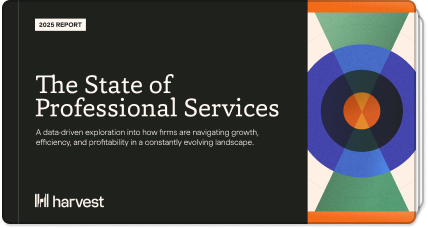
Whether you're a small startup or a large corporation, accurately tracking employee hours is crucial for project management, payroll, and overall productivity. That's where timesheet software comes in. In this guide, we'll talk about the world of timesheets, exploring different types, the role of timesheet software, and recommendations for the best tools in the market.
What are the types of timesheets?
-
Paper Timesheets: Traditional paper timesheets involve manually recording hours worked on physical documents. While simple and cost-effective, paper timesheets are prone to errors, inefficiencies, and can be easily lost or damaged.
-
Excel Timesheets: Excel timesheets offer a step up from paper-based methods by providing electronic spreadsheets for tracking employee hours. They offer more flexibility and customization options, allowing businesses to create tailored templates. However, they still require manual data entry and lack real-time tracking capabilities.
-
Online Timesheets: Online or digital timesheets are the modern solution to time tracking. These cloud-based platforms allow employees to log their hours from anywhere with an internet connection. Online timesheets offer features such as automated calculations, real-time updates, and integration with other business tools, making them the preferred choice for many businesses.
What is timesheet software?
Timesheet software is a digital tool designed to streamline the process of time tracking and management. These software solutions automate the recording, tracking, and reporting of employee hours, saving businesses time and reducing errors associated with manual methods. Timesheet software typically includes features such as:
- Time Tracking: Employees can easily clock in and out, record breaks, and track time spent on different projects or tasks.
- Automated Calculations: The software automatically calculates total hours worked, overtime, and time off, eliminating the need for manual calculations.
- Reporting and Analytics: Generate detailed reports and analytics to gain insights into employee productivity, project costs, and resource allocation.
- Integration: Seamless integration with other business tools such as payroll, project management, and HR software for streamlined operations.
- Mobile Accessibility: Many timesheet software solutions offer mobile apps, allowing employees to track their time on the go using smartphones or tablets.
What is the best timesheet software for my business?
Choosing the best timesheet software for your business depends on various factors such as your industry, company size, budget, and specific requirements. Determining the best option requires careful consideration of several factors to ensure it aligns with your specific needs and goals. Here's how you can identify the right solution:
-
Assess Your Requirements: Start by identifying your company's unique requirements and priorities. Consider factors such as the size of your team, the nature of your projects, remote work capabilities, and integration needs with other business tools such as payroll or project management software.
-
Consider User-Friendliness: Opt for a timesheet software that is intuitive and easy to use for both employees and administrators. Look for features such as simple navigation, clear instructions, and customizable interfaces that can be tailored to your company's workflows.
-
Evaluate Features and Functionality: Look for essential features such as time tracking, automated calculations, reporting and analytics, mobile accessibility, and integration capabilities. Consider whether the software offers advanced functionalities such as GPS tracking, invoicing, expense tracking, or project management tools that align with your business requirements.
-
Scalability and Flexibility: Choose a timesheet software that can scale with your company as it grows. Ensure the software can accommodate an increasing number of users, projects, and clients without compromising performance or usability. Additionally, look for flexibility in terms of customization options and the ability to adapt to evolving business needs.
-
Check Reviews and Recommendations: Research online reviews, testimonials, and recommendations from other businesses in your industry or similar size. Pay attention to user feedback regarding ease of implementation, customer support, reliability, and overall satisfaction with the software.
-
Trial Period or Demo: Many timesheet software providers offer free trials or demos, allowing you to test the software before making a commitment. Take advantage of these opportunities to evaluate the user experience, features, and suitability of the software for your company's needs.
-
Cost Considerations: Determine your budget for timesheet software and compare pricing plans from different providers. Consider not only the upfront costs but also any additional fees for features, user licenses, or support services. Choose a solution that offers the best value for your investment while meeting your requirements.
By carefully assessing your company's requirements, evaluating features and functionality, considering scalability and flexibility, checking reviews and recommendations, trying out demos or trial periods, and factoring in cost considerations, you can determine the best timesheet software that meets your company's needs and facilitates efficient time tracking and management processes.
What is a timesheet with an example?
Let's illustrate the concept of a timesheet with a simple example:
Suppose you run a small marketing agency with a team of five employees. Each employee is responsible for tracking their time spent on client projects throughout the week using an online timesheet software.
Here's a snapshot of a typical timesheet:
In this example, an employee logs their time spent on different client projects and tasks each day. At the end of the week, they submit their timesheet for approval, and the data is used for project billing, payroll processing, and performance analysis.
Timesheets provide valuable insights into employee productivity, project costs, and resource allocation, helping businesses make informed decisions and optimize their operations.
This blog post provides a comprehensive overview of timesheets for employees, addressing key questions and providing actionable insights for businesses looking to improve their time tracking processes. If you have any further questions or need assistance with implementing timesheet solutions for your business, give a free trial of Harvest a spin.















